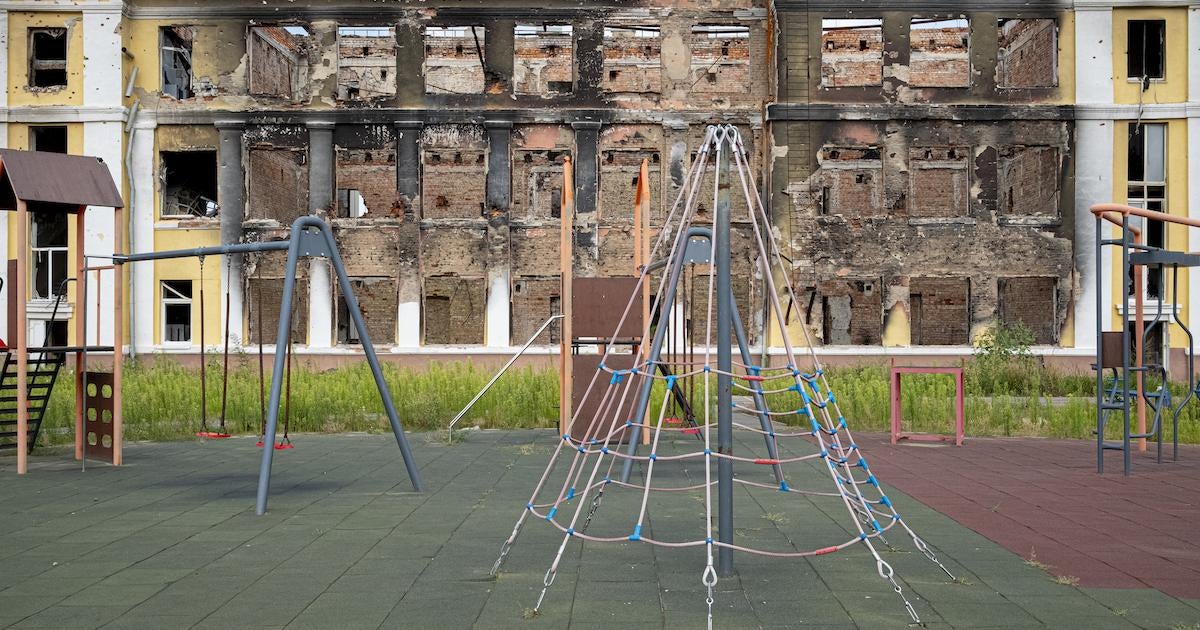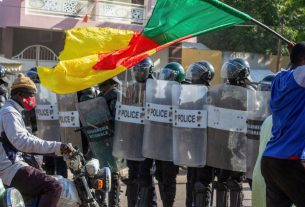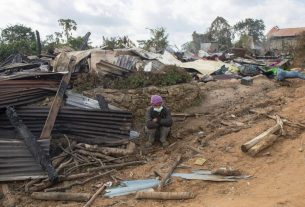This report was authored by a partner organization, the Global Coalition to Protect Education from Attack, and is distributed by Human Rights Watch.
(New York) – More than 3,000 attacks on education were identified in 2022, a 17 percent increase over the previous year, the Global Coalition to Protect Education from Attack (GCPEA) reported in a data release today. The data were released ahead of the fourth United Nations International Day to Protect Education from Attack, on September 9, 2023. Almost one-third of all attacks took place in just three countries: Ukraine, Myanmar, and Burkina Faso, with the war in Ukraine accounting for the majority.
According to GCPEA, more than 6,700 students and educators were reportedly killed, injured, abducted, arrested, or otherwise harmed by attacks on education in 2022, an increase of 20 percent from 2021. Armed forces and non-state armed groups using schools for military purposes also rose in 2022, with over 510 cases reported, compared with around 450 the previous year. Explosive weapons, both targeted and indiscriminate, were frequently used in attacks on education, causing widespread damage. Unexploded ordnance will continue to pose a deadly risk for years to come.
“The International Day to Protect Education from Attack serves as a stark reminder that schools are not always the safe refuges they should be, but instead are often the sites of extreme violence and terror,” said Diya Nijhowne, GCPEA executive director. “The distressing increase in attacks last year underscores the urgent need for both armed forces and non-state armed groups to safeguard education, including by avoiding using explosive weapons with wide-area effects in populated areas, such as near schools or universities, and refraining from using schools for military purposes.”
The coalition also released a new 39-page report, Non-State Armed Groups and Attacks on Education: Exploring Trends and Practices to Curb Violations, which found that, in 2020 and 2021, more than half of all attacks on education, and a quarter of reported military use of schools and universities, were by non-state armed groups. The report highlights the various motivations these groups have for attacking schools and educators, and provides recommendations and strategies for reducing these attacks. In 2022 and 2023, non-state armed groups continued to perpetrate a significant proportion of all attacks. In just one example, Al-Shabaab, an insurgent group in Somalia, claimed responsibility for a car bomb attack in October 2022 against the Ministry of Education that killed at least 121 civilians and wounded hundreds more.
The Safe Schools Declaration, a political commitment to protect students, educators, schools, and universities during armed conflict, endorsed by 118 countries, plays an essential role in preventing, and mitigating the impact of attacks on education. By endorsing the Declaration, governments also commit to using the Guidelines for Protecting Schools and Universities from Military Use during Armed Conflict.
The use of schools as bases, firing positions, detention centers, training grounds, and for other military purposes, can convert the schools into military targets, putting the lives of those within them at risk, and deterring students and teachers from attending out of fear or because the schools are closed to education. Those who do attend are vulnerable to sexual violence and recruitment by soldiers. School infrastructure and learning materials are also damaged, affecting the quality of education, and sometimes making learning impossible.
Since 2015, when the Safe Schools Declaration was launched, over a dozen governments have made changes to their national policies, practices, or military manuals, to limit the use of schools for military purposes. Non-state armed groups have also taken measures to safeguard education. In October 2022, several groups operating in Burkina Faso signed unilateral declarations committing to protect educational institutions. In Yemen, the Houthis – who control the capital and other parts of the country – signed an action plan in 2022 to end attacks on schools along with other grave violations against children.
“Despite the chilling statistics on attacks on education and the staggering loss of life and potential that these numbers represent, there is still much hope,” Nijhowne said. “The Safe Schools Declaration and its guidelines on military use of schools provide a roadmap for preserving the lives and futures of students and teachers, and the communities they build. On this International Day to Protect Education from Attack, all countries should endorse the Declaration and put its commitments into action.”
Notes to editors:
The Global Coalition to Protect Education from Attack (GCPEA) is a coalition of UN agencies and nongovernmental organizations working in the fields of education in emergencies, protection, and higher education. GCPEA is grateful for the support it receives from the Education Above All Foundation (EAA), Education Cannot Wait (ECW), the United Nations Children’s Fund (UNICEF), the United Nations Educational, Scientific and Cultural Organization (UNESCO), the Norwegian Ministry of Foreign Affairs, and an anonymous donor.



